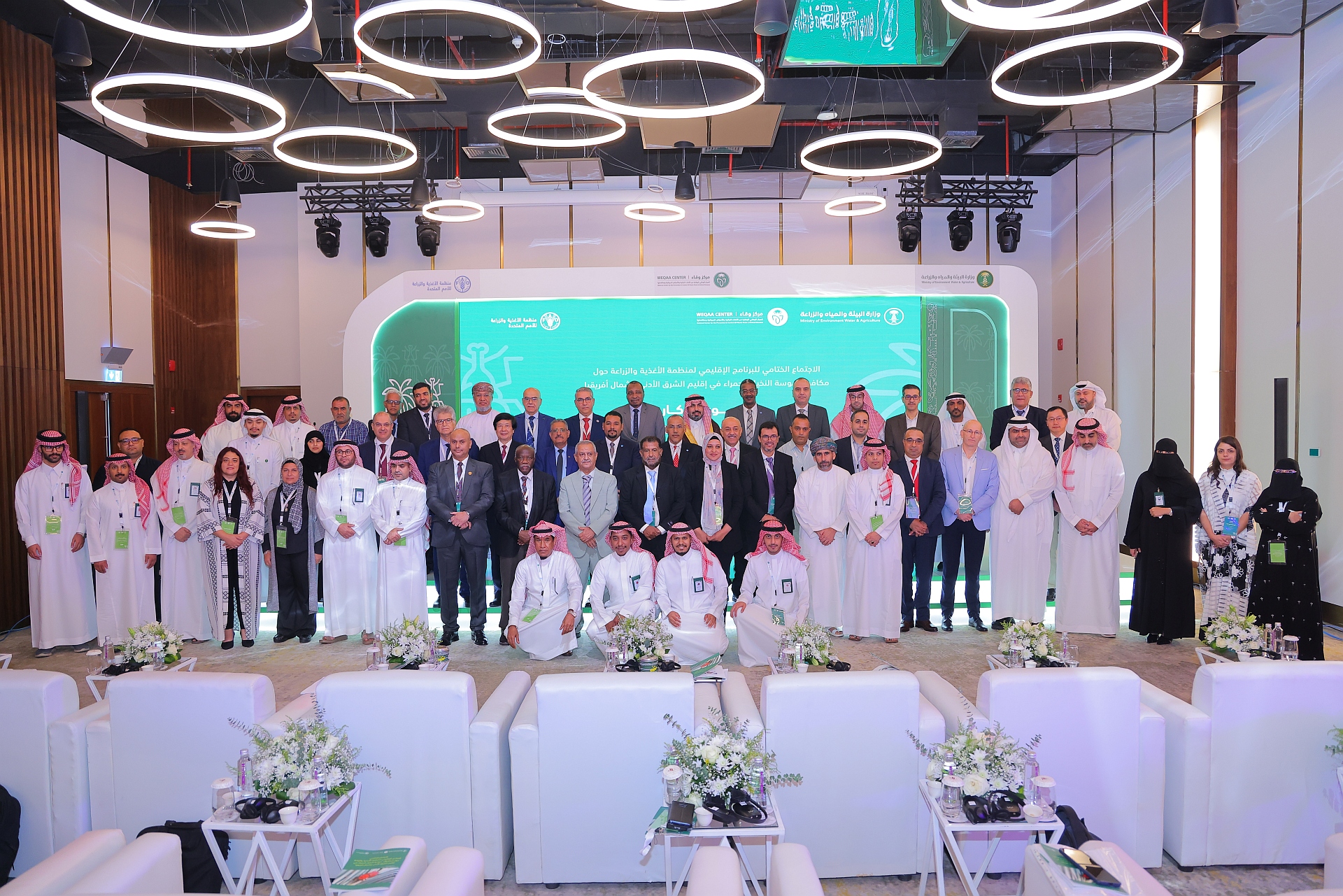Strengthening Regional Efforts: FAO Holds Wrap-up Meeting of Regional Programme on Red Palm Weevil Eradication in Jedda

©WEQAA Center
The Food and Agriculture Organization (FAO) of the United Nations successfully concluded its Wrap-Up Meeting for the Regional Programme on Red Palm Weevil (RPW) Eradication in the Near East and North Africa (NENA) Region, held on October 28-29, 2024, in Jeddah, Saudi Arabia. The meeting was collaboratively organized by the National Center for the Prevention and Control of Plant Pests and Animal Diseases (Weqaa Center) and was attended by 55 participants.
This pivotal meeting brought together key stakeholders, including government representatives, donors, and technical experts, to assess progress, share insights, and outline future strategies and ways forward in combating the Red Palm Weevil.
The Red Palm Weevil is a highly serious invasive pest that poses a significant threat to date palm cultivation, which is vital to the agricultural economy and cultural heritage of the NENA region. Over the past years, the FAO has spearheaded efforts to manage and eradicate this pest through a collaborative approach involving most NENA countries.
During the meeting, participants reviewed the outcomes of the FAO programme, highlighting successful interventions and the importance of regional cooperation in addressing the challenges posed by RPW.
The presentations and discussions focused on the results achieved by 15 project partners representing regional and international scientific institutions and organizations in the field of research, capacity development, and knowledge and technology transfer.
Several outcomes have been achieved by the regional programme, such as enhancing governance that supports policies and regulations for sustainable control of the RPW. This includes regional guidelines for phytosanitary measures to prevent the spread of RPW, the establishment and maintenance of RPW-free areas, and guidelines for the certification of plant propagation material of date palms. Strategies for monitoring and surveillance were discussed, focusing on the effective early warning systems that were validated to detect and monitor the spread of RPW. Innovations and modern technologies that can contribute to developing long-term solutions for RPW management were showcased. The socio-economic impacts of RPW on local communities and farmers were also addressed.
"The successful conclusion of this programme marks a pivotal step in our collective efforts in the fight against the RPW. By strengthening the governance, enhancing the monitoring systems, and fostering regional collaboration, we are taking significant strides towards sustainable management and protection of our vital date palm resources," said Thaer Yaseen, the plant protection officer for the Near East and North Africa, FAORNE.
The meeting addressed ways to move forward in managing RPW. Participants highlighted the importance of capacity building at all levels to ensure sustainable and effective management of RPW. They reasserted the necessity of ongoing cooperation among countries to share knowledge and enhance regional coordination.
The meeting concluded with a commitment from all stakeholders to enhance ongoing efforts against RPW, emphasizing the importance of collective action to protect date palm cultivation and support livelihoods in the region.
